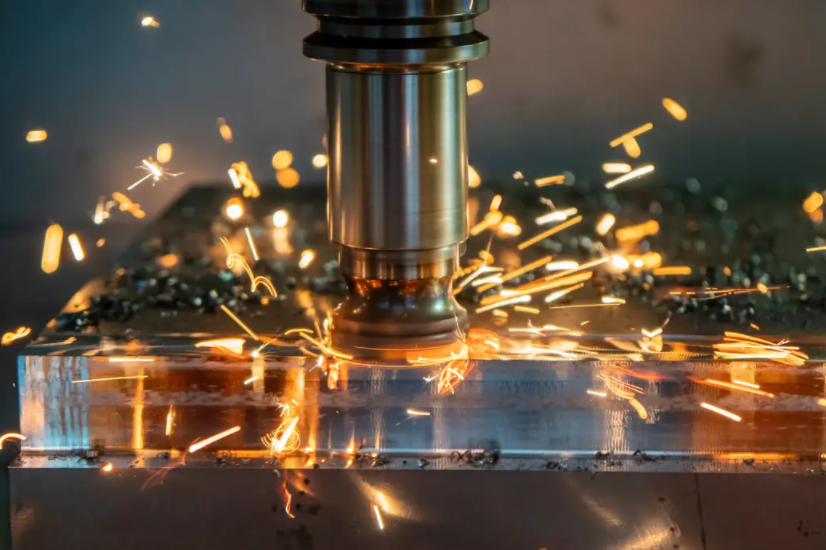Title: Aluminum Conversion Coating: Enhancing Corrosion Resistance and Surface Protection
Introduction:
Aluminum conversion coating is a widely used surface treatment process that enhances the corrosion resistance and surface protection of aluminum alloys. This article aims to provide an overview of the conversion coating process, its benefits, and its applications in various industries.
1. Understanding Aluminum Conversion Coating:
1.1 Definition and Process:
Aluminum conversion coating is a chemical process that involves applying a thin, protective film on the surface of aluminum alloys. The coating is formed by the reaction between the metal surface and a chemical solution, resulting in the formation of a stable and adherent layer.
1.2 Types of Conversion Coatings:
There are various types of conversion coatings available for aluminum, including chromate, phosphate, chromate-phosphate, and titanium-based coatings. Each type offers unique properties and benefits, depending on the specific application requirements.
2. Benefits of Aluminum Conversion Coating:
2.1 Corrosion Resistance:
One of the primary reasons for using aluminum conversion coating is its ability to enhance the corrosion resistance of aluminum alloys. The protective layer acts as a barrier, preventing the penetration of moisture, oxygen, and other corrosive agents, thereby significantly extending the component\’s lifespan.
2.2 Surface Protection:
Conversion coatings provide an additional layer of protection to the aluminum surface, safeguarding it against abrasion, scratches, and wear. This helps maintain the aesthetic appeal and structural integrity of the aluminum components, making them suitable for various applications.
2.3 Paint Adhesion:
Conversion coatings improve the adhesion of paint, allowing for better bonding and durability of the applied coating. This is particularly important in industries where painted aluminum components are exposed to harsh environmental conditions, such as automotive and aerospace industries.
3. Applications of Aluminum Conversion Coating:
3.1 Automotive Industry:
Aluminum conversion coatings find extensive use in the automotive industry, where lightweight aluminum alloys are increasingly being used to improve fuel efficiency and reduce emissions. The conversion coating enhances the corrosion resistance of aluminum components, ensuring their long-term durability.
3.2 Aerospace Industry:
In the aerospace industry, aluminum conversion coatings are crucial for protecting various aluminum-based components, such as airframes, fasteners, and engine parts. The coatings provide reliable corrosion resistance and surface protection in the demanding aerospace environment.
3.3 Construction and Architecture:
Aluminum conversion coatings are widely employed in architectural applications, including windows, doors, and curtain walls. The coatings not only enhance the corrosion resistance but also improve the aesthetic appearance of the aluminum surfaces, allowing for a wide range of color options.
4. Environmental Considerations:
4.1 Hexavalent Chromium Alternatives:
Hexavalent chromium-based coatings, historically used in aluminum conversion coating processes, have raised environmental concerns due to their toxicity. As a result, researchers have developed alternative coating solutions that are chromium-free or have lower chromium content, ensuring environmental compliance.
4.2 Waste Management:
Proper waste management practices should be followed in the aluminum conversion coating process to minimize environmental impact. Effective treatment and disposal methods for the chemicals used in the conversion coating process are essential to prevent pollution and comply with regulations.
Conclusion:
Aluminum conversion coating is a valuable surface treatment technique that significantly enhances the corrosion resistance and surface protection of aluminum alloys. With its wide-ranging applications in industries such as automotive, aerospace, and construction, the process contributes to the longevity and performance of aluminum components. Moreover, ongoing research into environmentally friendly alternatives ensures the sustainability of this vital surface treatment process.
-

- Magnesium Aluminium alloy die casting parts Chain cover for automotive
-

- Integrated 3-spoke wheel for MTB with CNC machining &surface treatment
-

- Magnesium alloy die-casting parts&components for e-bike
-

- Magnesium alloy thixomolding components
-

- High precision magnesium thixomolding components UAV cover
-

- Magnesium alloy foundry parts bicycle wheel with CNC machining & surface finishing

 0086-750-5616188
0086-750-5616188 +86 13392089688
+86 13392089688 sales@zhongmei-tech.com
sales@zhongmei-tech.com







